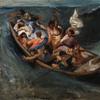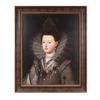
The Age of Impressionism: Great French Paintings from the Clark
https://www.kimbellart.org/Exhibitions/Exhibition-Details.aspx?eid=75
With The Age of Impressionism: Great French Paintings from the Clark, the Kimbell Art Museum presents the first-ever international touring exhibition of masterpieces from the Sterling and Francine Clark Art Institute in Williamstown, Massachusetts. The Clark is best known for its holdings in French Impressionist painting, which include over thirty works by Pierre-Auguste Renoir. The seventy-three paintings in the exhibition include twenty-one by Renoir, along with four by Edgar Degas, two by Edouard Manet, six by Claude Monet, two by Berthe Morisot, seven by Camille Pissarro, and four by Alfred Sisley. Accompanying these will be works by other prominent French painters of the period, including William-Adolphe Bouguereau, Camille Corot, Paul Gauguin, Jean-Léon Gérome, Jacques-Joseph Tissot, and Henri de Toulouse-Lautrec. Many are celebrated masterpieces that visitors will recognize from reproductions even if they have never made the pilgrimage to Williamstown to see them in the flesh. The exhibition offers not only a feast of French nineteenth-century painting but also an insight into the personality and taste of the remarkable collectors who founded the Clark Art Institute. Sterling Clark was an heir to the Singer sewing machine fortune. Active from the 1910s to the 1950s, he and his wife Francine assembled an outstanding collection of paintings, sculpture, and drawings, as well as British silver and European porcelain. Their range extended not only to Impressionism, but also to Renaissance paintings and to American works, one of the most famous of which is John Singer Sargent's Fumée d'Ambre Gris, an early venture in "Orientalist" subject matter. They founded the Clark Art Institute as a showcase for their collection in 1955. Although the Clark's holdings have been expanded greatly since then, notably through the addition of a growing collection of early photography, its scope and character continue to represent the interests of the founders.

100x100_n.jpg)
100x100_c.jpg)











100x100_c.jpg)

